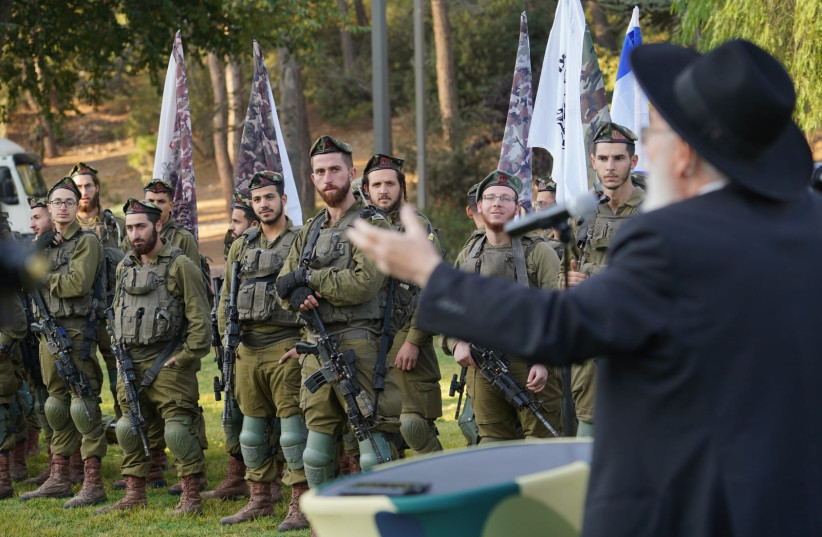Try performing a Google search for Netzah Yehuda: the only haredi battalion in the IDF and the unit in which most haredi combat soldiers serve.
Among the first results are a couple of articles decrying how two female soldiers and Druze soldiers were removed from the base. One of them opens with the words, by now familiar, “The troubled IDF haredi Netzah Yehuda Battalion.” The piece is flanked by a range of other items reporting negatively on the battalion.
If this isn’t biased, I don’t know what is.
Using the recent piece as a simple illustration, isn’t it obvious that a Druze soldier simply cannot be a kitchen worker in a haredi battalion? And doesn’t it make sense that the presence of female soldiers in a haredi battalion is highly problematic and could even undermine the unit? Had they not been transferred, the soldiers would have doubtless asked for their own transfer at the first opportunity.
This is just one example. When other incidents related to the battalion are reported in Israeli media outlets, facts are likewise distorted, or context is hidden to make the matter look worse than it really is. Few and far between are pieces that are fair and objective.

Moreover, when reporting on general army incidents, media outlets tend to entirely overlook the identity of the battalion. To cite an extreme example, the Elor Azarya episode made front-page news for months. Does anybody know which unit Azarya served in? The truth is that nobody knows and nobody cares, except when Netzah Yehuda is involved.
So why the prejudice against the haredi battalion, which until its recent transfer was the only battalion posted without interruption in Judea and Samaria – a pressure cooker that is hard to imagine and part of the reason why the battalion has received numerous awards?
What does Israeli society actually want?
The answer is that we, the general Israeli society, don’t really want haredi soldiers serving in the IDF. Meaning we want haredim to serve but we want them to be less haredi. If you’re already in the army, we think, then what’s the problem with having female soldiers around? And why not a Druze worker in the kitchen? And why special kashrut standards, prayer services and Torah study?
In other words, we want haredim integrated into Israel but we want it to happen on our terms. This is true for academia, the workplace and Israel’s public square. It’s also true for the IDF. But this approach cannot work. If haredim will serve in the IDF, it will have to meet their standards, even if we find them jarring, otherwise, it simply won’t happen.
We need a change of attitude. Haredi participation in the IDF is among the most crucial challenges for Israel. For non-haredi Israel, it is the deepest cause of frustration and resentment. Haredi combat soldiers are thus not only defending Israel but even mending the deep fractures of our society. We should be taking every opportunity to cheer for Netzah Yehuda and root for its success.
It is reprehensible that instead of support and deserved admiration for haredi young men making real sacrifices to serve in the army – many are lone soldiers, disowned by their own families – our media singles them out for unfair criticism. It makes zero sense.
It’s high time we changed our tune on everything concerning Netzah Yehuda. Of course, we must not be blind to shortcomings but they require context. The haredi context calls for sensitivity, gratitude, and appreciation of the big picture. Because the big picture is our future, our shared future.
David Hager is a Los Angeles businessman with a decades-long involvement in the area of haredi integration in the IDF. Yehoshua Pfeffer is a community rabbi in Jerusalem, founding editor of the haredi journal Tzarich Iyun, and head of the Tikvah Fund’s haredi division. Both serve on the board of Netzah Yehuda, a civilian organization which services haredi soldiers.
